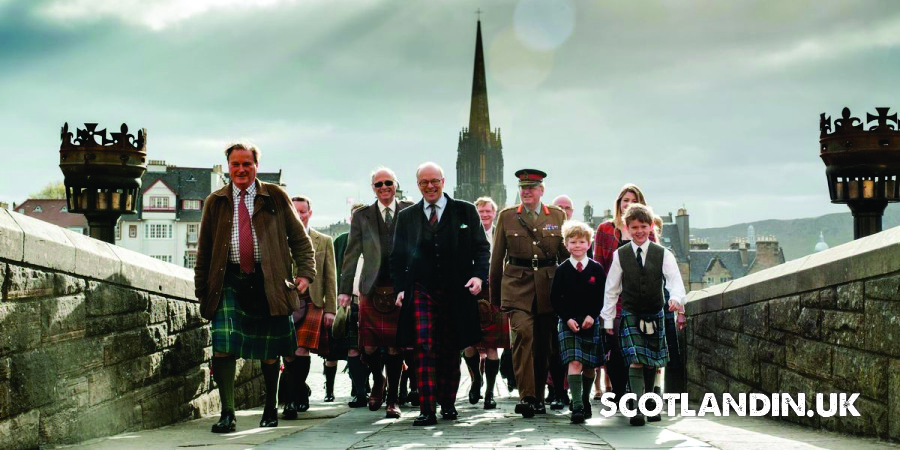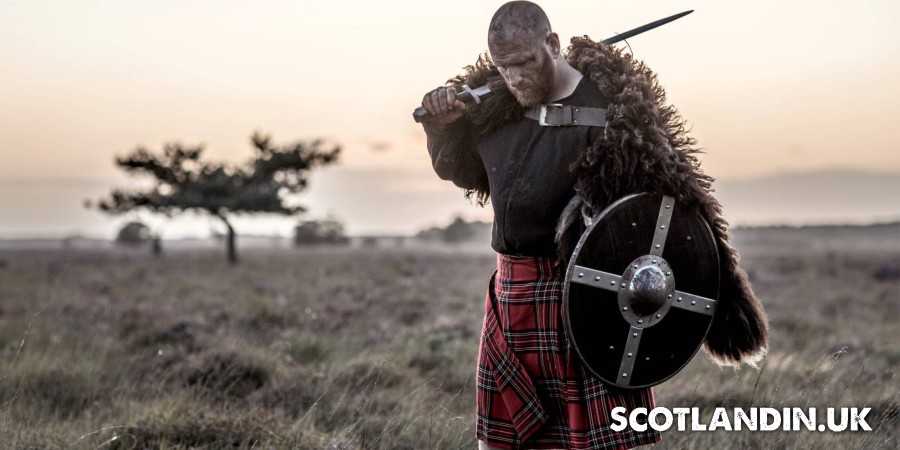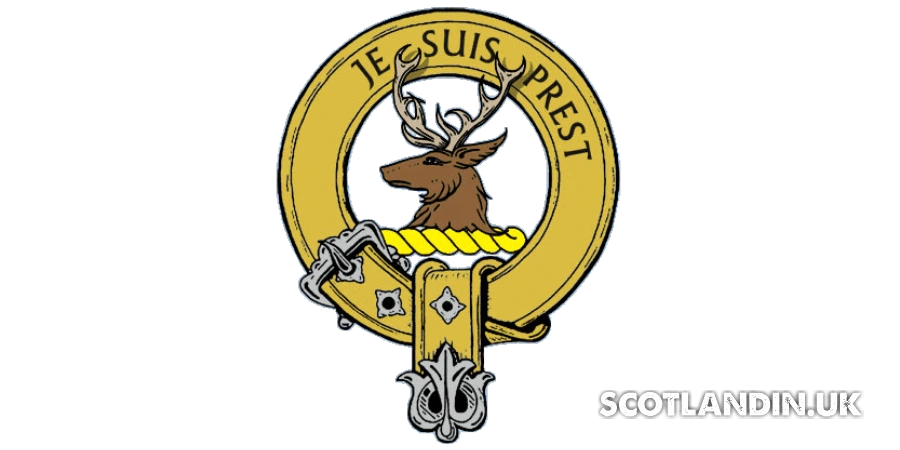
The clans of Scotland have had a significant influence on the nation’s history, leaving an indelible imprint on its cultural fabric. Join us on a journey to discover the renowned Scottish clans that have shaped the course of history and learn about their notable achievements and contributions.
1. Clan Campbell

The Clan Campbell of Scotland is one of the most prominent and influential clans in Scottish history. With a rich heritage spanning centuries, the Campbells have left an indelible mark on the country’s cultural and political landscape.
Originating from the region of Argyll in western Scotland, the Campbells rose to prominence as loyal supporters of the Scottish crown. Their power and influence grew over time, and they became known as skilled politicians, military strategists, and landowners.
The Campbells played a crucial role in various historical events, including the Wars of Scottish Independence and the Jacobite uprisings. They were adept at navigating the ever-changing political alliances and often found themselves in positions of authority.
Throughout their history, the Clan Campbell demonstrated their prowess in building alliances and acquiring vast land holdings. Their ancestral seat, Inveraray Castle, stands as a testament to their architectural legacy.
Today, the Clan Campbell continues to thrive, with a widespread global diaspora and a strong sense of pride in their heritage. Their distinctive tartan and crest, featuring a boar’s head and the motto “Ne Obliviscaris” (Latin for “Do Not Forget”), symbolize their identity and enduring legacy.
The Clan Campbell of Scotland serves as a reminder of the resilience, ambition, and lasting impact of Scottish clans in shaping the nation’s history.
2. Clan MacDonald

The Clan MacDonald of Scotland, also known as the MacDonalds, holds a prominent place in Scottish history and folklore. With their roots in the western Highlands and the Hebrides, the MacDonalds were one of the most powerful and expansive clans in Scotland.
The MacDonalds, often referred to as the Lords of the Isles, controlled vast territories and played a significant role in regional politics and warfare. They were renowned for their martial prowess and strategic alliances.
Throughout history, the MacDonalds were intimately involved in key events, including the Wars of Scottish Independence and the Jacobite uprisings. Their support for the Stuart cause further solidified their reputation as staunch defenders of Scottish independence.
The clan’s seat, the iconic Dunvegan Castle on the Isle of Skye, stands as a testament to their enduring legacy. It has served as the MacDonalds’ ancestral stronghold for centuries, a symbol of their power and influence.
The MacDonalds’ tartan and crest, featuring a galley and the motto “Per mare per terras” (Latin for “By sea and by land”), reflect their maritime heritage and their willingness to defend their lands across all fronts.
Today, the MacDonalds continue to celebrate their heritage, and their global diaspora serves as a testament to the enduring fascination with their rich history. The Clan MacDonald of Scotland represents the spirit of the Scottish clans, their resilience, and their integral role in shaping the nation’s identity.
3. Clan MacLeod

The Clan MacLeod of Scotland, known for their ancestral ties to the Isle of Skye, holds a prominent place among the Scottish clans. With a history spanning centuries, the MacLeods have left an indelible mark on Scotland’s cultural and historical landscape.
The MacLeods are renowned for their warrior traditions and have played significant roles in Scottish history. Their ancestral seat, the majestic Dunvegan Castle, stands as a symbol of their enduring power and heritage.

Which scottish clans have viking roots?. The history of Scotland is rich and diverse, with various cultures leaving their mark on the land. One significant influence comes from the Vikings…
The clan’s tartan and crest, featuring a “warrior’s hand” holding a sword, exemplify their martial prowess and unwavering commitment to their heritage. Their motto, “Hold Fast,” echoes their determination to preserve their traditions and protect their ancestral lands.
Throughout history, the MacLeods have been part of pivotal events, including the Jacobite uprisings and conflicts with rival clans. They have displayed a steadfast loyalty to their cause and a deep sense of honor.
Today, the Clan MacLeod maintains a strong sense of identity and pride in their heritage. Their global diaspora continues to celebrate their traditions and ancestral ties, keeping the spirit of the MacLeods alive.
The Clan MacLeod of Scotland serves as a testament to the enduring legacy of the Scottish clans, embodying the valor, resilience, and distinctive cultural heritage that have shaped Scotland’s history.
4. Clan MacKenzie

The Clan MacKenzie of Scotland, a prominent Highland clan, boasts a storied history that has left an indelible mark on Scottish heritage. With roots in the northern Highlands, the MacKenzies have played significant roles in Scottish politics and cultural traditions.
The clan’s notable figures include the Earls of Seaforth, who held considerable influence over the region. The MacKenzies actively participated in the Jacobite uprisings, aligning themselves with the Stuart cause.
Their ancestral seat, Castle Leod, stands as a testament to their historical significance and architectural legacy. The MacKenzies have a distinct tartan and crest, featuring a stag’s head and the motto “Luceo non uro” (Latin for “I shine, not burn”).
The clan’s history also includes the renowned tale of the “MacKenzie of Kintail’s Coat,” where a MacKenzie chief’s coat miraculously withstood a fire. This legend has become an enduring symbol of the clan’s resilience and pride.
Today, the Clan MacKenzie embraces its heritage, and their widespread global presence showcases the enduring fascination with their ancestry. Through clan associations and gatherings, they keep the traditions and spirit of the MacKenzies alive.
The Clan MacKenzie of Scotland serves as a testament to the enduring legacy of Scottish clans, representing their contributions to Scottish history, cultural identity, and the captivating tales that continue to captivate generations.
5. Clan Fraser

The Clan Fraser of Scotland, an ancient and storied Highland clan, holds a prominent place in Scottish history and folklore. Known for their resilience and bravery, the Frasers have made significant contributions to Scotland’s cultural heritage.
The clan’s origins can be traced back to the region of Tweeddale, with their ancestral seat at Castle Fraser. Throughout history, the Frasers actively participated in pivotal events such as the Wars of Scottish Independence and the Jacobite uprisings.
The Frasers are associated with the motto “All my hope is in God,” which exemplifies their unwavering faith and determination. Their tartan and crest, featuring a buck’s head, symbolize their connection to the natural beauty of the Scottish Highlands.
One of the clan’s most renowned members is Simon Fraser, the 11th Lord Lovat, who played a notable role in the Jacobite cause. His colorful personality and cunning strategies have left a lasting impression in Scottish folklore.
Today, the Clan Fraser maintains a strong sense of identity and pride in their heritage. They actively engage in clan associations and events to honor their ancestry and preserve their cultural traditions.
The Clan Fraser of Scotland stands as a testament to the enduring spirit of Scottish clans, representing their contributions to Scotland’s history, valor in times of conflict, and their lasting impact on the country’s cultural fabric.
6. Clan Gordon

The Clan Gordon of Scotland, a renowned Highland clan, has left an indelible mark on Scottish history and culture. Known for their military prowess and influential role in Scottish affairs, the Gordons have played a significant part in shaping the nation’s heritage.
Originating from the northeast of Scotland, the Gordons rose to prominence as powerful landowners and loyal supporters of the Scottish crown. They actively participated in pivotal events such as the Wars of Scottish Independence and the Jacobite uprisings.
The clan’s ancestral seat, Huntly Castle, stands as a testament to their historical significance and architectural legacy. The Gordons have a distinctive tartan and crest, featuring a stag’s head and the motto “Bydand” (meaning “Remaining” or “Persevering”), representing their steadfastness and determination.
One of the clan’s most notable figures is General Charles Gordon of Khartoum, a military leader who became a national hero. His bravery and selflessness in the face of adversity have become legendary.
Today, the Clan Gordon continues to thrive, with a widespread global presence and a strong sense of pride in their heritage. They actively engage in clan activities and maintain a connection to their ancestral lands.
The Clan Gordon of Scotland serves as a testament to the enduring spirit of Scottish clans, representing their contributions to Scottish history, military valor, and the preservation of cultural traditions that continue to captivate generations.
7. Clan MacGregor

The Clan MacGregor of Scotland, known for their resilience and turbulent history, holds a special place in Scottish lore. Originating from the western Highlands, the MacGregors faced significant challenges throughout the centuries but managed to preserve their cultural identity.
The clan’s history is marked by conflicts with other clans and the Scottish government, leading to a period of proscription that banned the use of the MacGregor name. Despite this adversity, the MacGregors endured and reestablished their clan identity.
Their ancestral lands included the rugged region of Glenorchy and Loch Awe, where they displayed their warrior spirit and fiercely defended their territory. The MacGregors are associated with a tartan of predominantly red and green hues.
Notable MacGregors, such as Rob Roy MacGregor, became legendary figures in Scottish folklore. Rob Roy, a renowned outlaw, exhibited courage and cunning in his resistance against oppression, leaving a lasting impression on Scottish history.
Today, the Clan MacGregor embraces their heritage with pride, celebrating their resilience and unique legacy. Clan gatherings and associations provide opportunities for MacGregors around the world to connect and preserve their ancestral traditions.
The Clan MacGregor of Scotland serves as a testament to the enduring spirit of Scottish clans, representing their ability to overcome adversity, preserve their cultural heritage, and inspire generations with tales of courage and determination.
8. Clan Sinclair

The Clan Sinclair of Scotland, with its origins in the northern Highlands, holds a prominent place in Scottish history and boasts a rich heritage. The Sinclairs, also known as the St. Clair or St. Clare, have made notable contributions to Scottish culture and have left a lasting impact.
The clan’s ancestral seat, Rosslyn Castle and later Rosslyn Chapel, has become a symbol of their historical significance and architectural legacy. The Sinclair tartan, characterized by its bold blue and green patterns, represents their distinctive identity.
Throughout history, the Sinclairs have been involved in significant events, including the Crusades and the Wars of Scottish Independence. Their support for the Jacobite cause further solidified their role in Scottish politics.
The clan is associated with a motto, “Commit thy work to God,” which reflects their commitment to faith and determination in their endeavors. Notable figures, such as Henry I Sinclair, Earl of Orkney, have contributed to the clan’s historical reputation.
Today, the Clan Sinclair maintains a strong sense of identity and pride in their heritage. They actively engage in clan associations and gatherings, preserving their cultural traditions and connecting with their fellow Sinclairs around the world.
The Clan Sinclair of Scotland represents the enduring spirit of Scottish clans, exemplifying their contributions to Scottish history, cultural heritage, and the captivating tales that continue to inspire and fascinate generations.
9. Clan Cameron

The Clan Cameron of Scotland, hailing from the western Highlands, holds a prominent and storied place in Scottish history and culture. With a legacy rooted in bravery and resilience, the Camerons have left an indelible mark on the nation’s heritage.
The clan’s ancestral lands, centered around Lochaber, bear witness to their historical significance. The Camerons played a significant role in Scotland’s conflicts, including the Jacobite uprisings, where they staunchly supported the cause of the exiled Stuart monarchy.
Renowned for their fierce warrior traditions, the Camerons proudly bear a tartan characterized by its vibrant red and green hues. Their crest, featuring a sheaf of arrows and the motto “Aonaibh Ri Cheile” (meaning “Unite”), reflects their unity and readiness for battle.
One of the clan’s most celebrated figures is Sir Ewen Cameron of Lochiel, known as the “Gentle Lochiel.” He demonstrated remarkable leadership during the Jacobite rising of 1745, symbolizing the Cameron spirit and loyalty.
Today, the Clan Cameron continues to honor its heritage, with a global community that actively preserves its traditions and bonds through clan associations and gatherings. Their unwavering pride in their ancestry keeps the flame of the Cameron legacy alive.
The Clan Cameron of Scotland exemplifies the enduring spirit of Scottish clans, representing their contributions to Scottish history, their valor on the battlefield, and the sense of kinship that binds their community together.
10. Clan MacDuff

The Clan MacDuff of Scotland, rooted in ancient Celtic heritage, holds a significant place in Scottish history and tradition. As hereditary protectors of the Scottish monarchs, the MacDuffs have played a pivotal role in the nation’s governance and defense.
Originating from Fife, the MacDuffs are associated with the title of “Earl of Fife” and have been instrumental in the coronation ceremonies of Scottish kings. Their ancestral seat, MacDuff’s Castle, stands as a testament to their historical significance.
The MacDuff tartan, characterized by its bold red and black patterns, symbolizes their distinguished lineage. Their crest, featuring a lion rampant and the motto “Deus juvat” (meaning “God assists”), represents their noble character and unwavering loyalty.
Historically, the MacDuffs have demonstrated their courage and commitment to the Scottish cause. One of the clan’s notable figures is Macbeth, immortalized in Shakespeare’s play, who was portrayed as the Thane of Fife and later became the King of Scotland.
Today, the Clan MacDuff continues to honor its heritage, with clan associations fostering a sense of kinship and preserving their cultural traditions. The MacDuffs stand as a testament to the enduring legacy of Scottish clans, representing their integral role in Scottish history and their commitment to upholding Scottish identity.